Books Like House of Leaves
Dive into a realm where reality tilts and narratives weave a haunting labyrinth of psychological depth and existential dread. Much like 'House of Leaves,' this collection explores themes of madness, obsession, and the unreliable nature of memory, all wrapped within intricate storytelling and hauntingly immersive settings. Perfect for readers craving a literary puzzle that challenges perception and beckons the brave to unveil the shadows within the human psyche.

A young family moves into a small home on Ash Tree Lane where they discover something is terribly wrong: their house is bigger on the inside than it is on the outside. Of course, neither Pulitzer Prize-winning photojournalist Will Navidson nor his companion Karen Green was prepared to face the consequences of that impossibility, until the day their two little children wandered off and their voices eerily began to return another story—of creature darkness, of an ever-growing abyss behind a closet door, and of that unholy growl which soon enough would tear through their walls and consume all their dreams.
Similar Books You Might Enjoy
If you enjoyed House of Leaves, you might also like these books.
Discover your next great read from our curated selection of similar books.
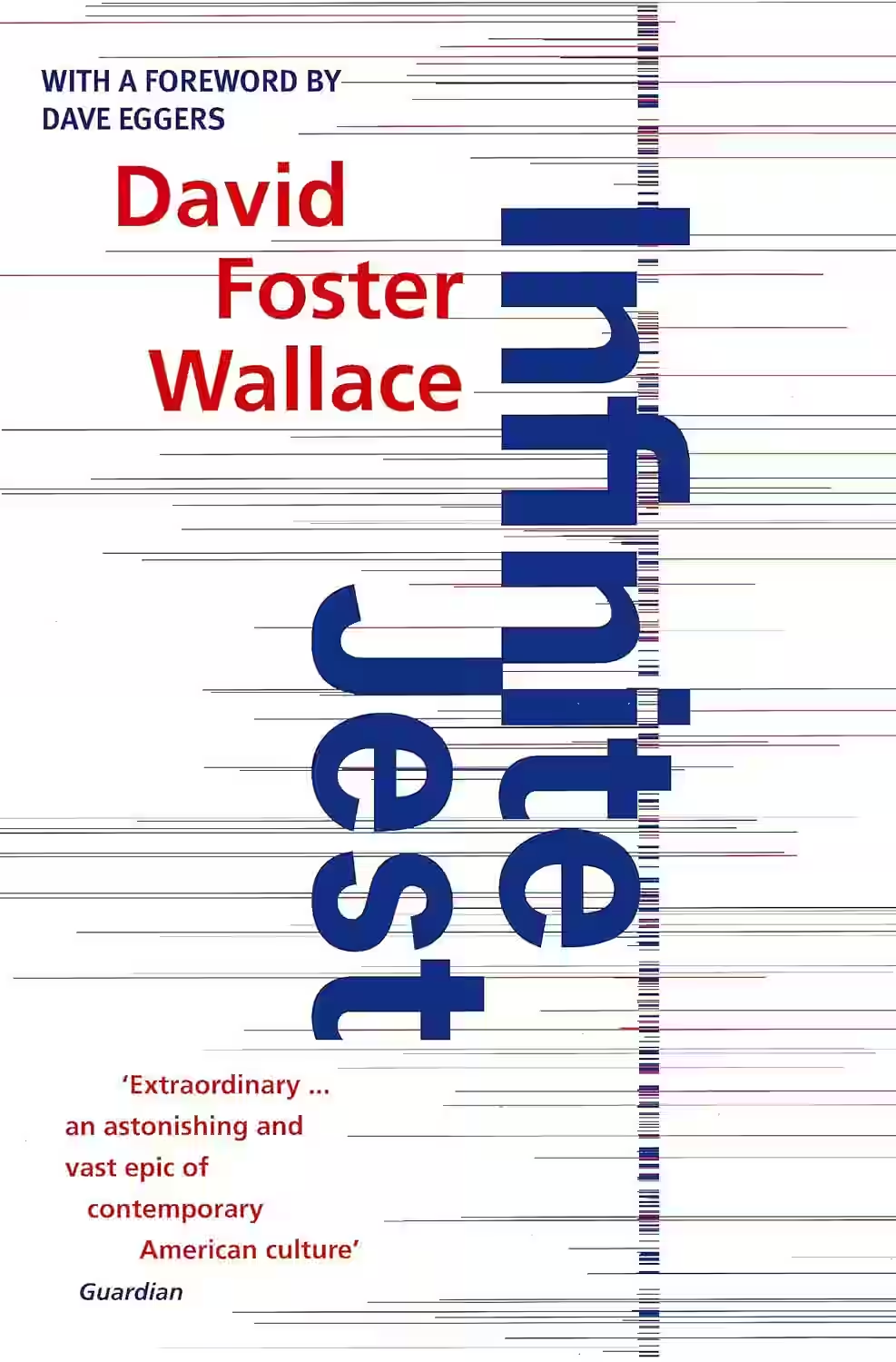
David Foster Wallace's 'Infinite Jest' is a sprawling, intricate narrative that delves into the complexities of addiction, entertainment, and the search for meaning. Set in a dystopian North America, the story primarily unfolds around the students of the Enfield Tennis Academy and the residents of a nearby drug and alcohol rehabilitation center. Through its rich, multifaceted characters and a plethora of subplots interwoven with irony and dark humor, the novel examines the human condition and our incessant quest for pleasure and distraction. Wallace's innovative narrative structure and his exploration of themes such as media saturation, corporate power, and existential angst challenge and captivate readers, marking 'Infinite Jest' as a seminal work of postmodern literature.

In Steven Hall's 'The Raw Shark Texts,' we follow the journey of Eric Sanderson as he grapples with memory loss and uncovers a mysterious world where a conceptual shark hunts him through the dangerous waters of the Un-Space. The novel seamlessly weaves elements of psychological thriller, mystery, and metaphysical exploration, captivating readers with its unique narrative style and mind-bending twists. As Eric navigates through fragmented memories and cryptic messages, the story delves deep into themes of grief, identity, and the power of storytelling. 'The Raw Shark Texts' is a compelling and inventive literary work that challenges perceptions of reality and memory.

A young family moves into a small home on Ash Tree Lane where they discover something is terribly wrong: their house is bigger on the inside than it is on the outside. Of course, neither Pulitzer Prize-winning photojournalist Will Navidson nor his companion Karen Green was prepared to face the consequences of that impossibility, until the day their two little children wandered off and their voices eerily began to return another story—of creature darkness, of an ever-growing abyss behind a closet door, and of that unholy growl which soon enough would tear through their walls and consume all their dreams.

Donna Tartt's The Secret History is the original American campus novel. When Richard Papen joins an elite group of clever misfits at his New England college, it seems he can finally become the person he wants to be. Donna Tartt's The Secret History is the original American campus novel. When Richard Papen joins an elite group of clever misfits at his New England college, it seems he can finally become the person he wants to be. But the moral boundaries he will cross with his new friends - and the deaths they are responsible for - will change all of their lives forever. The Secret History recounts the terrible price we pay for mistakes made on the dark journey to adulthood.

Umberto Eco's 'Foucault's Pendulum' is an intellectually stimulating novel that challenges readers with its complex narrative and intricate web of historical references. The story revolves around three Milanese publishers who, disillusioned with conventional conspiracy theories, decide to invent their own grand scheme linking the world's mysteries. Amusing at first, their creation spirals out of control, blending myth and reality in a compelling critique of the human fascination with secret knowledge. Eco's dense yet rewarding prose explores themes like the idea of meaning-making, the intricacies of human belief, and the seductive allure of connections that may not exist. The novel engages readers with its rich detail, humor, and philosophical inquiries, making it a thought-provoking masterpiece for those patient enough to delve into its labyrinthine plot.

Thomas Pynchon's 'The Crying of Lot 49' is a masterful exploration of paranoia, chaos, and conspiracy set in the backdrop of 1960s California. This postmodern novel follows the protagonist Oedipa Maas as she is named the executor of her ex-lover's estate, leading to the uncovering of a shadowy organization known as the Tristero. Through a series of cryptic clues and encounters with eccentric characters, Oedipa's journey delves deep into themes of communication, existential uncertainty, and the elusiveness of meaning. Pynchon's peculiar prose, laced with dark humor and cultural critique, challenges readers to question the nature of reality and interpretation, leaving a lasting impact on modern literature.

Jeff VanderMeer's 'City of Saints and Madmen' is a mesmerizing entry into the world of speculative fiction, inviting readers into the fantastical city of Ambergris. Known for his lush prose and imaginative storytelling, VanderMeer delves into the eccentricities of this city, weaving together tales of intrigue, madness, and mystery. The book is a mosaic of stories, each revealing more about the bizarre inhabitants and history of Ambergris. VanderMeer employs an unconventional narrative style, blending elements of horror, fantasy, and surrealism. Themes of obsession, reality versus illusion, and the nature of madness permeate the narrative, creating an immersive experience. Its rich world-building and unpredictable plots captivate the imagination, making it both a challenging and rewarding read, and a cornerstone contribution to the New Weird literary genre.
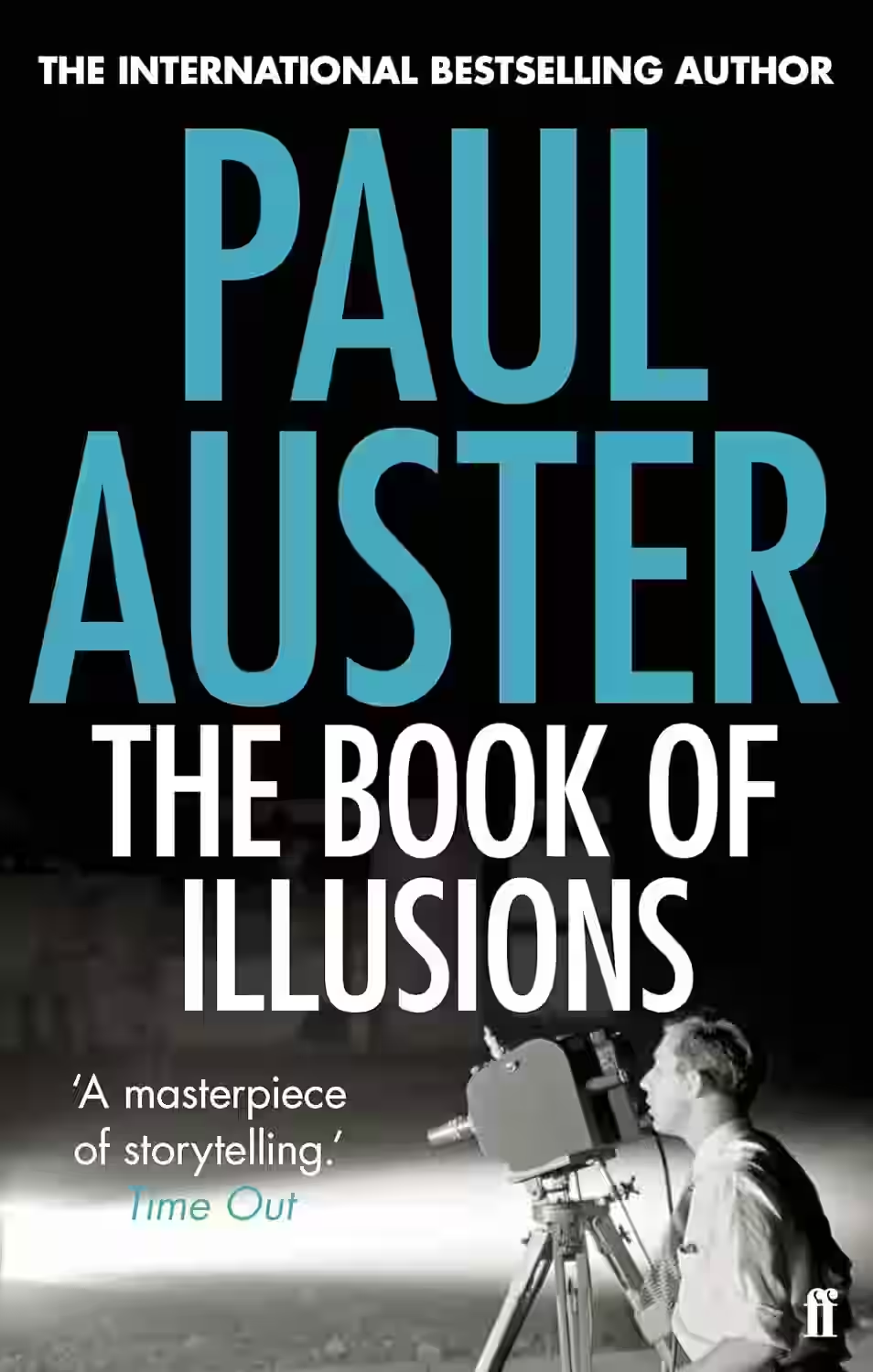
Paul Auster's 'The Book of Illusions' delves deep into themes of grief, identity, and redemption through a layered narrative that intertwines the lives of its protagonist, David Zimmer, and the enigmatic silent film star Hector Mann. Following a family tragedy, Zimmer immerses himself in Mann's films, writing a book that ultimately pulls him into a complex web of mystery and revelation. Auster masterfully crafts a thought-provoking exploration of how one's life can be dramatically altered by chance encounters and hidden truths, blending elements of noir and existential reflection. The novel captivates with its intricate plot and introspective prose, leaving readers to ponder the illusions that shape reality.

Vladimir Nabokov's 'Pale Fire' is a brilliantly conceived novel that blurs the lines between poetry and prose, fiction and criticism. At its center is a 999-line poem by the fictional poet John Shade, accompanied by an extensive commentary by his self-appointed editor, Charles Kinbote. The novel masterfully unfolds through Kinbote's verbose footnotes, which reveal his obsession with both the poem and Shade himself. Themes of artifice, madness, and the nature of textual interpretation are explored as Kinbote's commentary becomes increasingly detached from the poem, presenting a narrative of his own deluded reality. 'Pale Fire' is a metafictional masterpiece illustrating Nabokov's genius for linguistic play and deceptive storytelling, challenging readers to discern layers of meaning beneath its complex surface.

Roberto Bolaño's '2666' is a sprawling, enigmatic novel that traverses continents and genres, engulfing the reader in a labyrinthine narrative. Set primarily in the fictional Mexican town of Santa Teresa, the book intricately weaves together five distinct yet interconnected parts, each exploring themes of violence, obsession, and the quest for meaning. The novel's epic scope delves into the minds of literature critics, an elusive German author, a brutal crime wave, and a reclusive professor, all against the backdrop of the mysterious and incessant murders of women. Bolaño's masterful storytelling and evocative prose challenge conventional narrative structure, leaving a profound impact on readers as it delves deep into the human psyche and societal ills. '2666' is a testament to the power of literature to illuminate the darkest corners of human existence, a richly layered work that continually unfolds new insights with each reading.
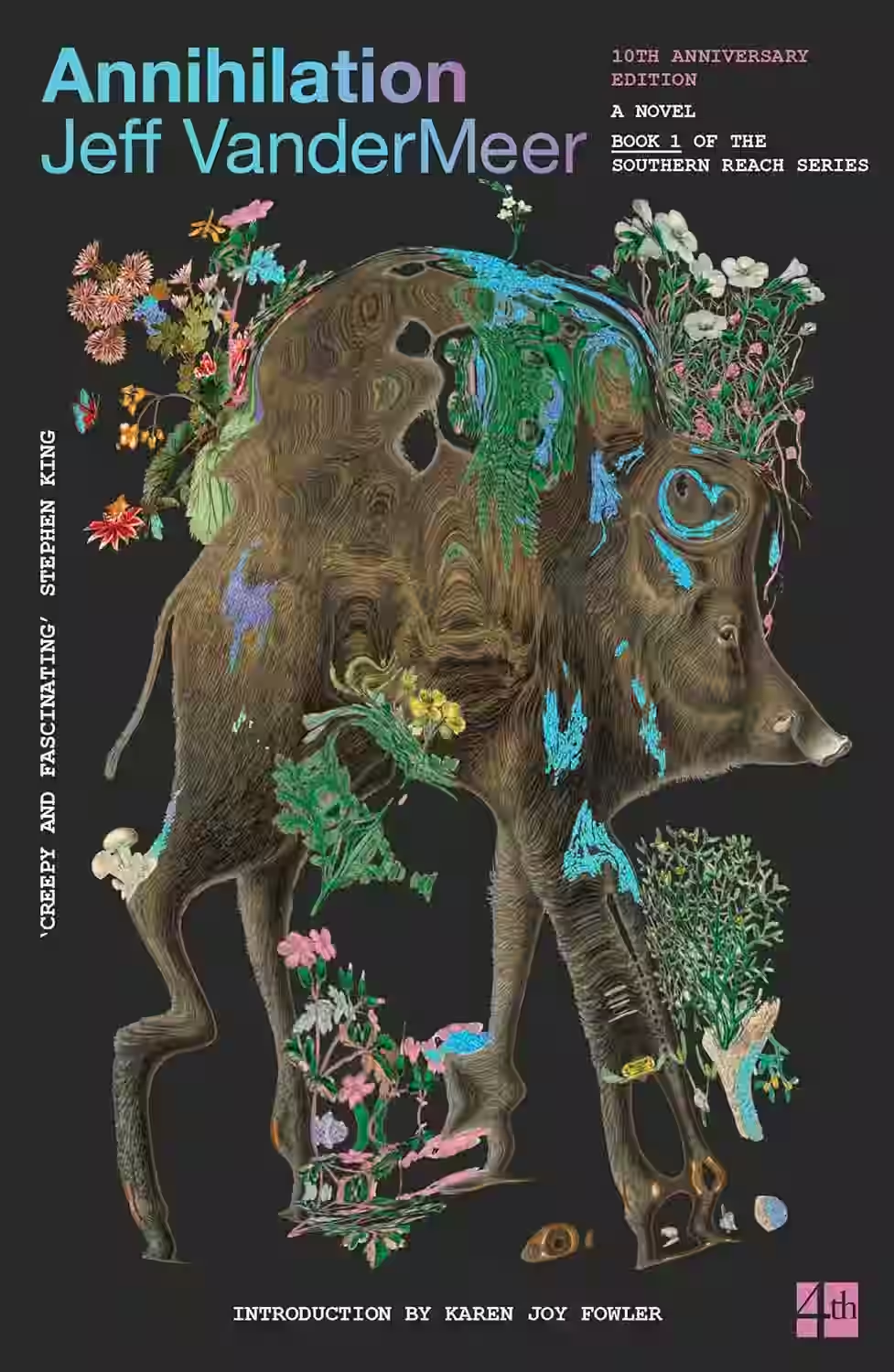
Annihilation, the first book in Jeff VanderMeer's Southern Reach Trilogy, plunges readers into the mysterious and unsettling world of Area X, a quarantined zone teeming with uncanny phenomena. The novel follows a biologist, part of an all-women exploratory team, on an expedition into this enigmatic landscape to uncover its secrets. As the group navigates the shifting borders and eerie silences of Area X, themes of identity, transformation, and the limits of human understanding loom large. VanderMeer's lyrical prose and disquieting atmosphere create a haunting narrative that blurs the line between science fiction and psychological thriller, leaving a lasting impression on readers intrigued by environmental and existential mysteries.
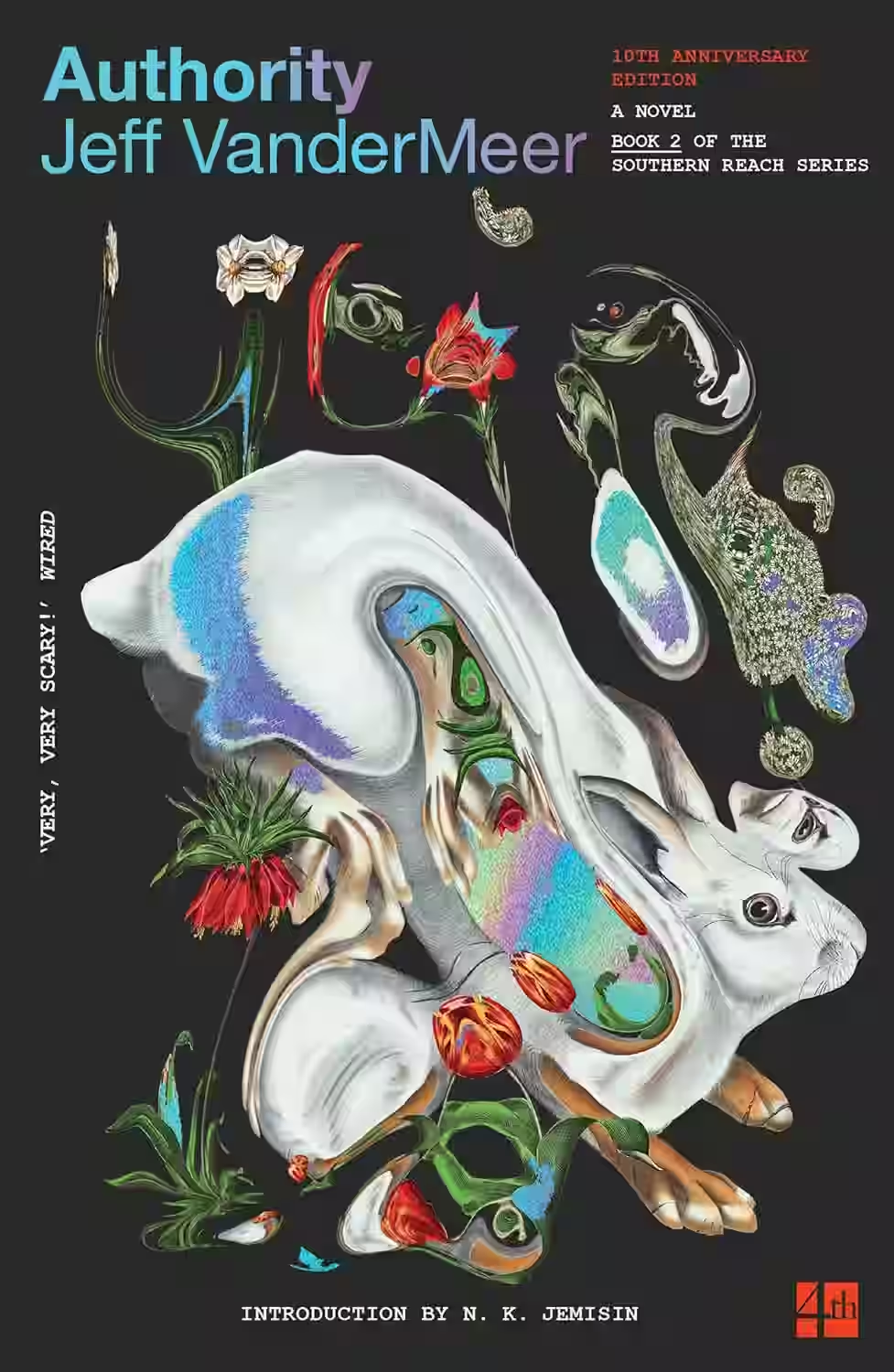
Authority, the second installment in Jeff VanderMeer's Southern Reach Trilogy, delves into the murky bureaucracies of the Southern Reach agency following the enigmatic events of Area X. Unlike the preceding novel, Annihilation, Authority shifts from the eerie, nature-laden wasteland to the confines of a government office, exploring themes of control, psychology, and the unknown. We follow John Rodriguez, alias 'Control,' as he battles personal demons and institutional secrecy while trying to uncover the mysteries of Area X. VanderMeer expertly creates a claustrophobic atmosphere through his rich prose, which seamlessly blends elements of psychological horror with a critique of institutional power, leaving readers both unsettled and intrigued.
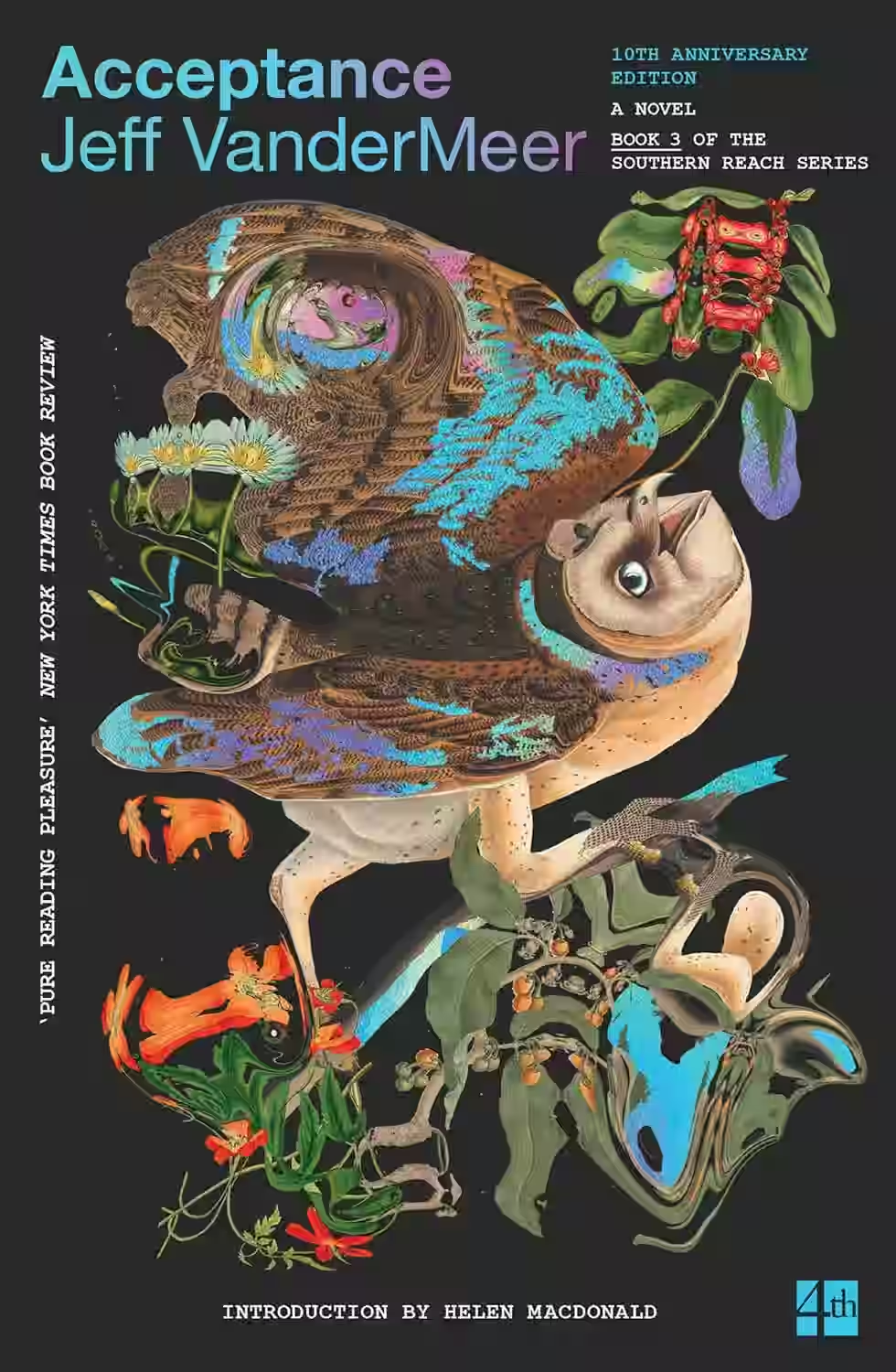
In 'Acceptance', Jeff VanderMeer delivers a gripping conclusion to the Southern Reach Trilogy, weaving together the enigmatic threads of Area X's mystery. The narrative switches between multiple perspectives, including that of the psychologist, the biologist, and Ghost Bird, each providing a unique lens on the unfolding events. VanderMeer masterfully explores themes of identity, transformation, and the unknowable aspects of human nature and the environment. His atmospheric prose immerses readers in a landscape as beautiful as it is terrifying, raising questions about ecological damage and humanity's place within it. The novel’s multi-layered storytelling and introspective depth will captivate those who appreciate literature that challenges perception and reality.
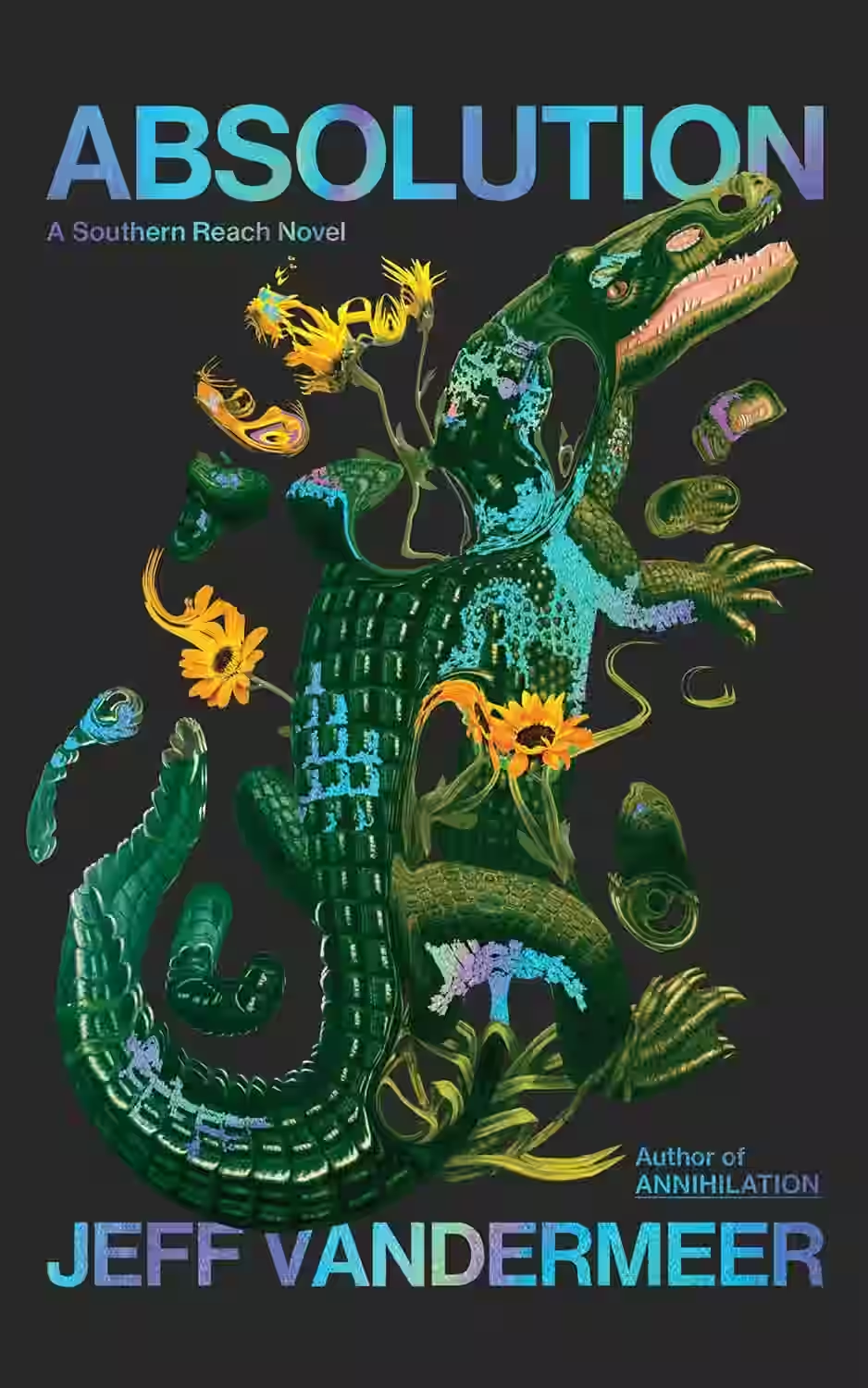
In 'Absolution,' Jeff VanderMeer weaves a captivating narrative entrenched in the realms of eco-fiction and speculative mystery, reflecting his deft touch with the uncanny and the richly imagined. The story follows characters trapped in a dystopian landscape marred by environmental collapse while dealing with their internal turmoil and moral grappling. VanderMeer's prose is almost musical as he explores the intersections between humanity and nature, raising profound questions about climate change, guilt, and redemption. His skillful layering of suspense and philosophical quandaries ensures that readers are both entertained and provoked to introspection, making 'Absolution' a compelling read for those who enjoy cerebral and environmentally conscious fiction.